#japanese imperial jewels
Text

Chichibu Pearl Drop Tiara ♕ Yuriko, Princess Mikasa (assumed)
66 notes
·
View notes
Text
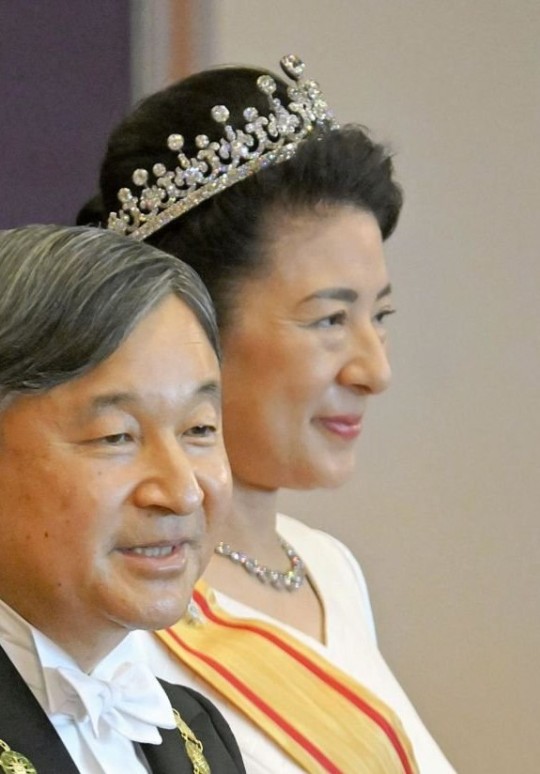
TIARA ALERT: Empress Masako wore Empress Shōken's Meiji Scroll Tiara at the New Year’s Reception at the Imperial Palace in Tokyo on 1 January 2024.
#Tiara Alert#Empress Masako#Japan#Japanese Imperial Family#tiara#diadem#royal jewels#tiaras#diadems#royaltyedit
113 notes
·
View notes
Text
The Two Kings in Tears of the Kingdom
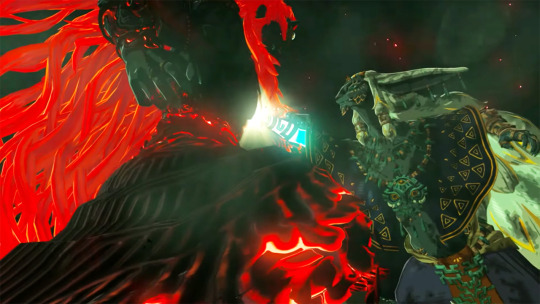
Tears of the Kingdom unearths the roots of Calamity Ganon in an ancient conflict between Rauru, the first king of Hyrule, and Ganondorf, a rival king who attempted to usurp him. In many ways, Rauru is characterized as a good king. He is noble, kind, and self-sacrificing, and he acts for the long-term benefit of the various groups of people living in Hyrule. In contrast to Rauru, the antagonist Ganondorf is an evil king who started a war because of his pride, ego, and greed.
Rauru and Ganondorf represent different styles of authority, both of which are grounded in Japanese fantasies of cultural identity. I’d argue that, in the end, neither king is fit to rule present-day Hyrule, which is why it’s appropriate that the game ends without any call to rebuild Hyrule Castle or the centralized government it symbolizes.
Rauru represents a golden age in Japanese culture when many arts now seen as “traditional” originated. This golden age is closely tied to Nintendo’s home city of Kyoto, which is associated with the culture of the imperial court before it moved to Tokyo in 1868. Because Tears of the Kingdom is a fantasy, the visual metaphors of Rauru’s character design are mixed, but his connection to a bygone golden age is tied to two symbols: the magatama jewels referred to as “secret stones,” and the kare-sansui dry landscape gardens of the Shrines of Light and the Temple of Time.
The “secret stones” that Rauru gives to the six sages have the distinctive comma shape of a magatama jewel, one of the three sacred symbols of Shinto. These three symbols are as follows: a mirror represents clarity of heart, a sword represents the power to protect the weak, and a jewel represents the materiality of divine blessings. These three objects also serve as the regalia of the Japanese emperor, whose role was historically to perform ritual prayers and thereby serve as a symbolic bridge between the world of humans and the world of gods.
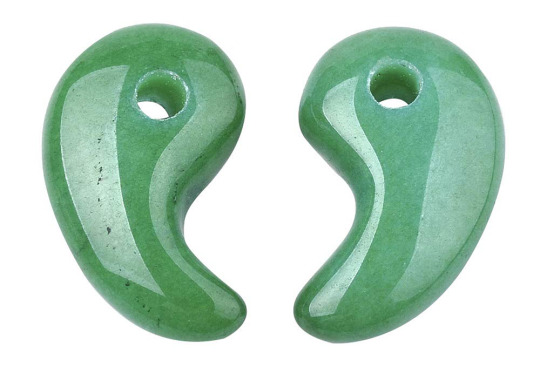
There is nothing sacrosanct about magatama jewels; at various street fairs and tourist areas throughout Japan, you can buy inexpensive polished quartz and jade magatama to attach to phone charms or friendship bracelets. As a result of its relative ubiquity, this particular shape of gem has both a historical and a pop culture association with being a magical stone bestowed by the gods on special and worthy individuals such as, most famously, the first Japanese emperor.
Along with his magatama “secret stones,” Rauru is associated with kare-sansui dry landscape gardens of the old imperial capital. Note, for instance, the front courtyard of the Temple of Time that Link visits at the beginning of the game:
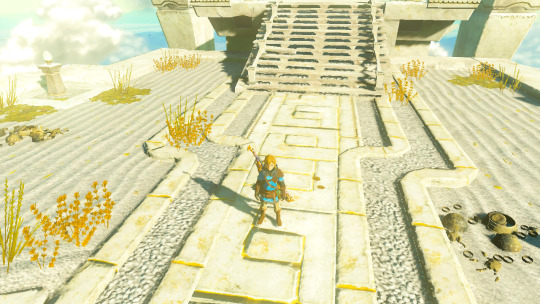
The visual motif of raked white gravel punctuated by standing rocks also appears in various permutations within the Shrines of Light established by Rauru and Sonia. To give an example, this is what the player will see if they circle back behind the entrance of the “Rauru’s Blessing” shrines:
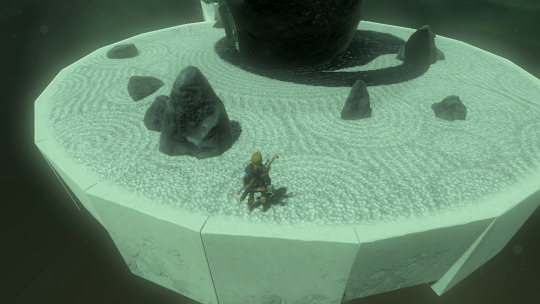
This style of dry landscape garden is frequently referred to as a “Zen garden” because of its association with large Buddhist temples in and around Kyoto. The most famous example of this style can be found at Ryōanji, in northwest Kyoto:
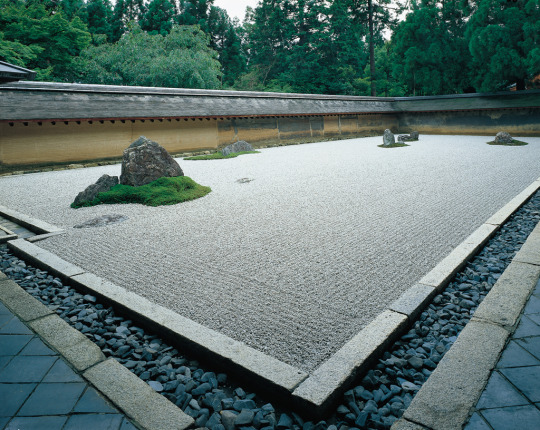
The philosophy of these gardens meshes well with the philosophy behind the Zelda series, which Shigeru Miyamoto has described as his attempt to create a tsuboniwa miniature garden for the player to explore. In the same way, dry landscape gardens represent a larger landscape portrayed on a much smaller scale. The rocks in the gravel are meant to represent islands on the ocean, or perhaps mountaintops rising above the clouds. Another common interpretation of these gardens – and one especially pertinent to Tears of the Kingdom – is that the rocks are the dorsal spines of a dragon swimming through the sky.
Although dry landscape gardens have strong ties to Buddhist thought, they were primarily created by wealthy lords residing in Kyoto during the fifteenth century. This was a politically unstable era, and these lords needed to make a show of their wealth and cultural legitimacy. Unlike in China, where Chan Buddhism was largely anti-establishment, Zen Buddhism was the domain of the wealthy educated elite in Japan. Many of the rocks used in Zen-style gardens were imported from China and Korea at great expense, and lords competed to secure the services of celebrity landscape designers. Even today, the late medieval culture represented by dry landscape gardens is associated with the prestige of Japan’s former imperial capital of Kyoto.
Rauru is therefore associated with nobility and a certain air of sophistication. In the original Japanese script, he is unflaggingly polite and addresses everyone – Zelda, Ganondorf, and Link alike – with the sort of “clean” language associated with people of high social standing. To put it simply, Rauru is a perfect gentleman. He is the personification of the aristocratic virtues of the “traditional Japan” of the late fifteenth century, during which the wealthy filled the capital city with gardens while countless wars ravaged the countryside.
In contrast, Ganondorf is a personification of the warrior culture of eastern Japan, especially as it was exemplified by the warlords who competed for territory outside the capital before the establishment of the Tokugawa shogunate at the beginning of the seventeenth century.
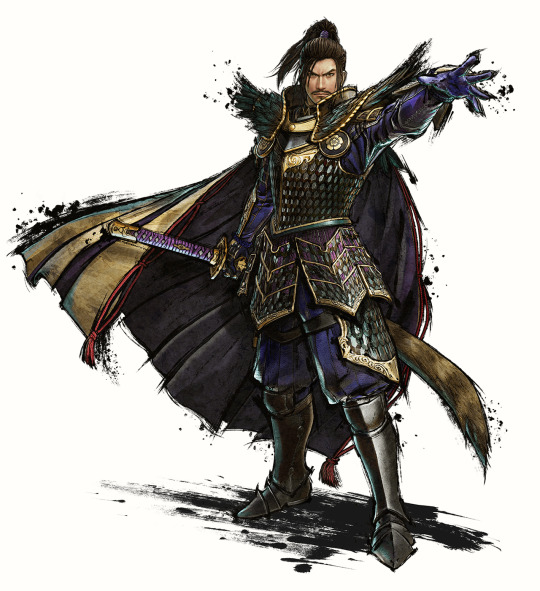
Oda Nobunaga was the most notorious of these warlords. He was infamous for being aggressive but effective, and his military prowess and ruthless tactics have been memorialized in a wealth of stories whose lineage stretches to the video games of the present day. I believe that Nobunaga (or, at least, a commonly fictionalized version of him) served as a model for Ganondorf, who seeks to take advantage of the instability of the newly established kingdom of Hyrule in order to expand his own territory.
Like Rauru, Ganondorf’s character design contains mixed visual metaphors, but I think it’s fair to say that his topknot and costume are meant to evoke a samurai who has thrown off the kimono sleeve covering his sword arm as an indication of his readiness for battle. This is a style still worn by practitioners of Japanese fencing and archery, which are common extracurricular activities in many high schools. Appropriately, Ganondorf fights with a tachi katana, a naginata spear, and the body-length longbow used in kyūdō archery – all weapons associated with the martial arts of Japan’s medieval military elite.
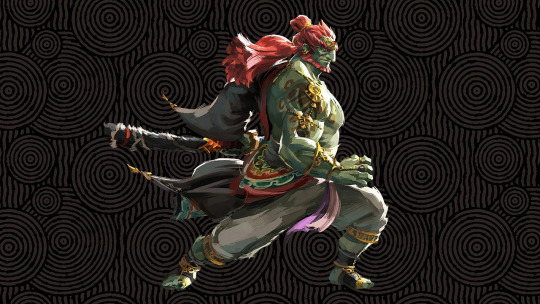
As if to cement his connection to Nobunaga, Ganondorf speaks in period-drama “samurai Japanese” that demonstrates neither the elegance nor the poetry of his incarnations in previous games. He seems to lack both regret and awareness of the consequences of his actions, and he is concerned primarily with hierarchy, conquest, and the thrill of battle.
As was arguably the case for Nobunaga himself, there is no endgame for Ganondorf, only scorched earth. Ganondorf has absolute faith in his own power, and he views other people only as subordinates or enemies. According to his value system, there is no merit in compromise; he simply takes it for granted that he will win.
It makes sense that the aggressively bloodthirsty Ganondorf is a villain, but it’s important to understand that Rauru is not a hero. With all his magic and culture and imperial splendor, Rauru failed to understand that the system of power he created could easily be turned against him. A nation politically defined by a central authority whose rule is justified through military conquest and the cultural chauvinism of “ancient tradition” is not sustainable, and the legacy of such a kingdom can only be tears.
This is why Hyrule Castle remains in ruins at the end of Tears of the Kingdom, and this is why the game’s central hub is a research station populated with people from all over the world. This is why Zelda doesn’t attempt to re-establish Hyrule as a kingdom, and this is why it’s so important to her to understand the reality behind the myth of the nation’s history. This is also why the grand mythology of Hyrule’s origin is far less important to the player’s experience of the game than individual acts of community building. The highlights of Tears of the Kingdom are Link’s work in facilitating a local election in Hateno, helping Lurelin recover from a disaster, and volunteering in towns facing environmental issues such as water pollution and climate change.
Both Rauru and Ganondorf are compelling in their own ways, but it’s thematically satisfying that both characters are gone at the end of the game. When Zelda meets with the regional leaders of Hyrule during the closing cutscene, they promise each other that they will work together to ensure a lasting peace that neither of the two kings made possible. The legacy of the past still affects Hyrule, but Tears of the Kingdom suggests that it’s the duty of the younger generation to understand where this legacy came from in order to avoid the mistakes of their ancestors and move forward in a more hopeful direction.
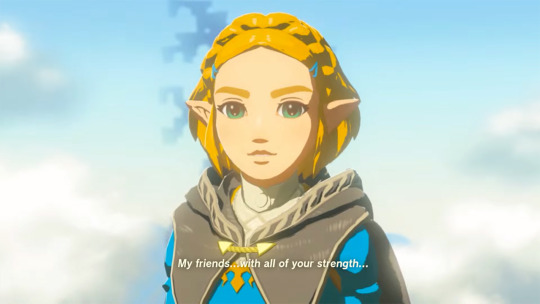
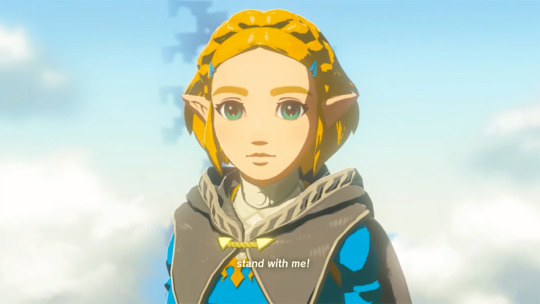
242 notes
·
View notes
Text
Fantasy Guide to A Coronation
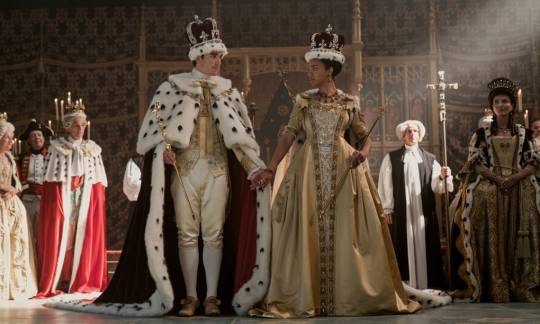
Coronations are the ceremony in which your monarch is confirmed by church or state or the people by the bestowing of a crown and regalia and the taking of oaths. So how do we write them?
When does Coronation takes place?
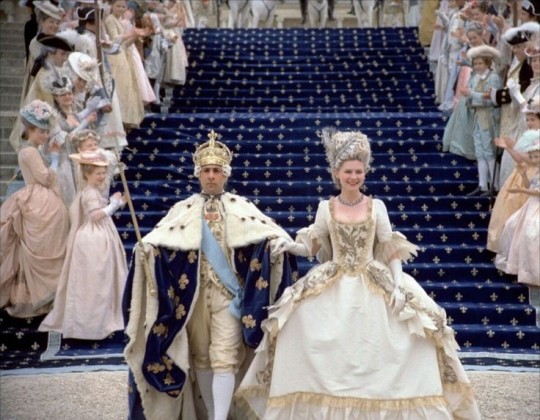
A Coronation usually takes place some time after death of the previous monarch. Past coronations would take place mere weeks after the death of a monarch as it was essential that the monarch be crowned to confirm their legitimacy. Modern coronations would take place months after the death of a monarch. In this time period, the new monarch IS the monarch - just uncrowned. This does not effect their powers in any way.
What’s in a Coronation?
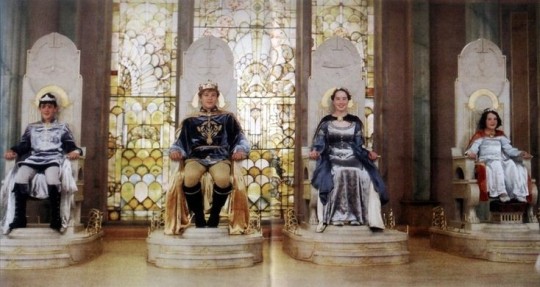
Coronations are usually very lavish affairs. These are not only just ceremonies, these are statements a sort of opening show to the monarch's reign. A Coronation will usually be accompanied by numerous parades, balls, pageants, military displays and concerts. It's usually framed as a celebration of the Royal family of the monarch or the nation as a whole. The population is expected to celebrate.
Who attends a Coronation?
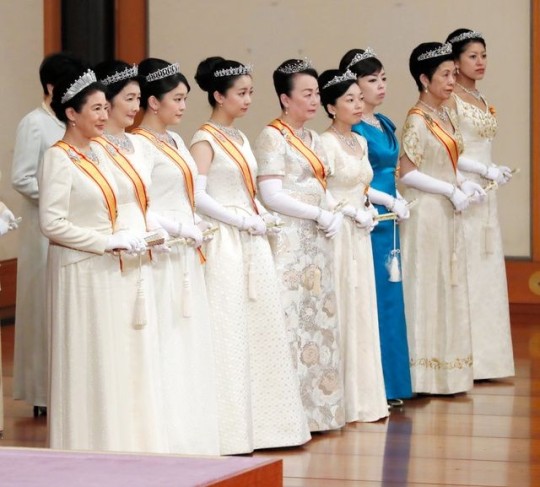
Coronations were big affairs. Many invitations would be sent out, inviting representatives from other nations, friends and allies, even uncertain friends and unfriendly nations. Other monarchs are generally not invited out of tradition but they will send heirs and relatives to represent them. Coronations were a display of wealth and power and it was in the monarch's best interest to get as many people there as possible. Coronations were also essential to monarchy for one very good reason: not only were you recognised by the state but it was a chance to accept fealty - promises of loyalty - from nobles. Many nobles from across the land would be invited to witness and then profess their loyalty to the Monarch.
What to Wear to a Coronation?
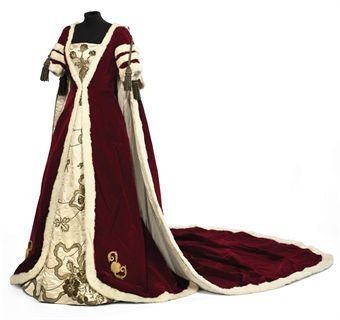
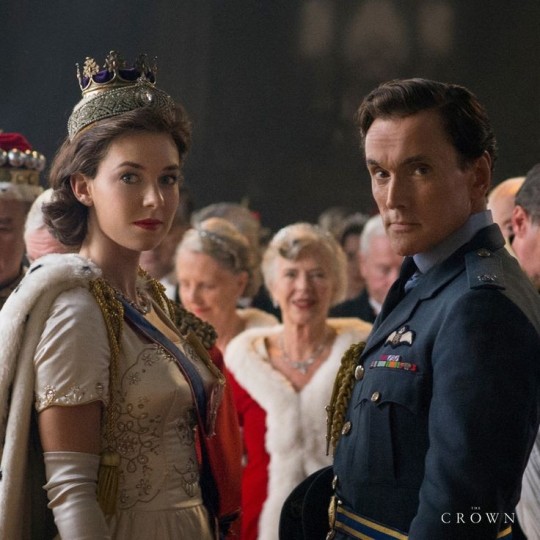
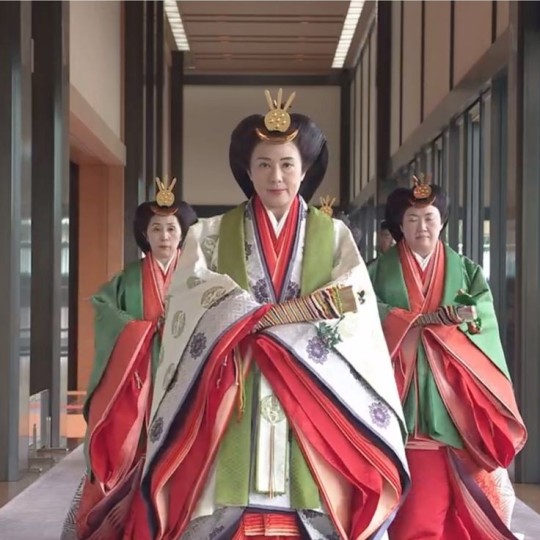
Coronations were meant to be pageants so everybody wore their very best clothes, jewels and put their best foot forward. Peers or nobles would wear red velvet robes (see above) over their clothes along with coronets (also see above) denoting rank. Traditional clothing would also be encouraged, the Japanese Imperial family often don traditional garments for their enthronements. The Royal family would wear military uniform or royal robes usually purple velvet rather than red trimmed with ermine. They would also wear coronets. The monarch would usually be the most expensive dressed, yet however this can also backfire. The monarch has to be modest yet also outdone everybody. George IV made the grave faux pas of spending a shit ton of money on his outfit for the coronation which he only wore the once. Most monarchs tend to have their Robes and clothes embroidered with emblems of the nation and to wear significant relics during the ceremony.
The Ceremony
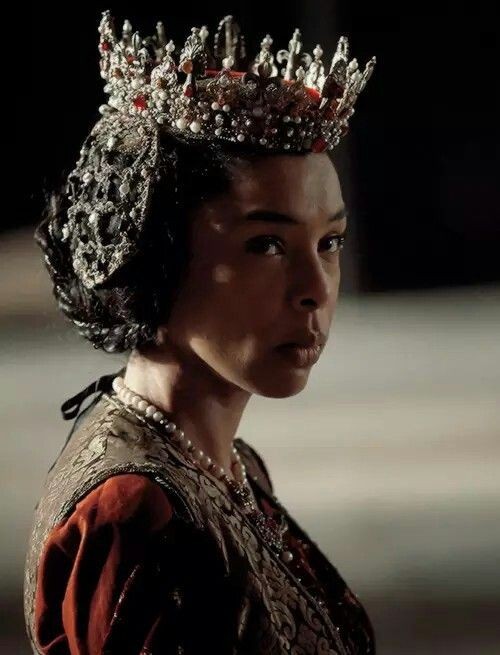
After a procession through the streets the monarch and/or their Consort arrive on the scene. They will be wrapped in red velvet Robes on their arrival and accompanied by pages or maids of honour who help carry the train of their Robes.
Before the monarch, selected peers will carry the regalia. These are the relics that are bestowed on the monarch throughout the ceremony. These usually include the crown itself, the sceptres, the coronation ring, the coronation Robes and an orb.
In some instances, the monarch would be presented to the assembled crowd at each Cardinal point - North, south, east, west and proclaimed the undoubted king/queen/sovereign. It is then the crowd issue an acceptance.
Monarchs would then be asked to take oaths by the figure ordaining them before the assembled crowd. These oaths would be one of service, something along the lines of promising to uphold law and tradition, being merciful, trying not to murder the peasants too much, keep their deity on side and try not to be too much of a failure.
Then monarch will sit on the throne and be anointed. During this part, they usually put a linen smock over their clothes to protect their finery. The anointing in Western culture is usually linked to Christianity, with the application of holy oil. However, the annointing can be replaced with a blessing in any other setting. During this part of the ceremony, the monarch and/or the Consort is shielded by a canopy of cloth of gold held aloft by high ranking nobles. This part of the ceremony is not to be witnessed by the crowd. It is sacred.
Then the monarch is wrapped in their new Robes. They are presented the regalia. The orb represents the monarch's power. The ring is symbolic of wedding oneself to duty. The sceptre is symbolic of power over governance. Once the monarch has been wrapped up and given these items, the Crown is then lowered onto their head. The crown is usually a jewel stubbed coronet fitted over a velvet cap and trimmed with ermine. There would be the monarch's crown and the Consort's crown (which is usually that much smaller). Around them, the nobility will place their coronets on simultaneously while the military give a gun salute.
After this, the Royal family and the peers would then come and kneel before the monarch, removing their coronets and making their oath of "I swear that I will pay true allegiance to Your Majesty, and to your heirs and successors according to law. So help me God." Once the path is made, they can step back and put their coronet back on.
Once homage is paid, the Consort would then be crowned if this is a married couple having their coronation. Consorts do not have to take an oath but they are given a coronation ring, a crown and sceptres.
Once everybody has made their oaths and the monarch can barely move under their Robes and regalia, it is time for the monarch to make a procession back through the streets - now a crowned monarch.
When Coronations go Wrong
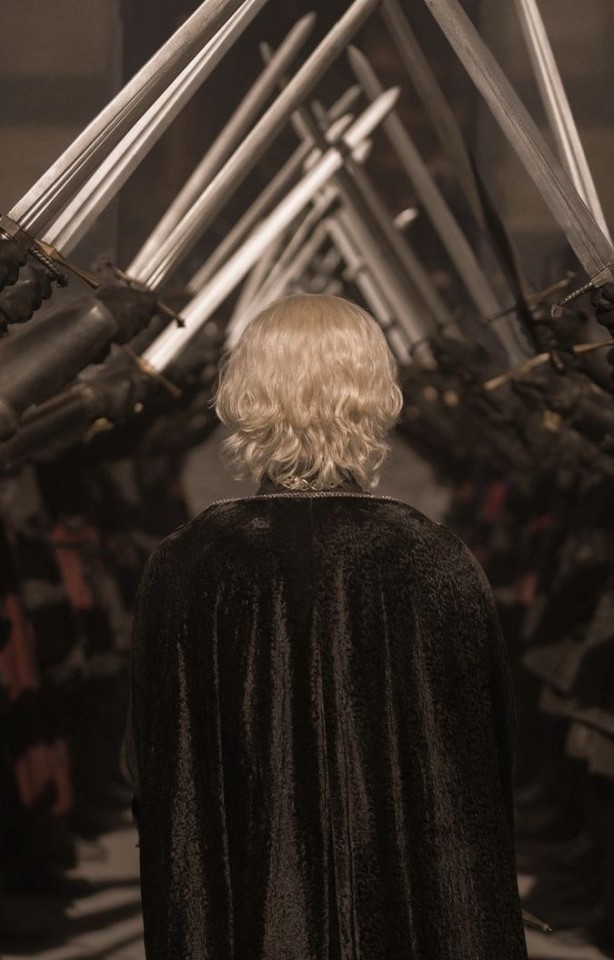
Like most ceremonies, things can go wrong at coronations. Most coronations go off without a hitch yet there are always downsides to a large, expensive ceremony of an unelected figurehead. Surprisingly.
Coronations are often long affairs. There are numerous historical accounts of peers and guests fainting from the exertion of standing in such heavy Robes. These Robes were not only deadly because of heat exhaustion but also their length. The elderly Lord Rolle actually fell down a flight of steps at Queen Victoria's coronation.
Many past coronations have failed due to poor planning. Nicholas II and his Consort Alexandra's coronation was a very lavish affair however due to terrible planning, a stampede occurred where thousands of Russian people where injured and killed. Despite the tragedy, the Couple did not visit the site or the injured, instead going to the French ambassador's ball on bad advice. History would remember him as Bloody Nicholas, made all the more bloody by the Revolution years after.
George IV, as per usual, caused consternation at his own coronation by constantly walking out from under his canopy which caused the nobles holding it to speed up making it all look rather silly.
Guestlists are often contentious points. It is very important not to jar international relations by snubbing foreign powers. While some of the nobles are invited, it is usually expected that the crown will invite representatives from all nations. If invitations are not issued, it can lead to issues. The Royal family is nearly always invited in its entirety even despite criminal activity (fuck you Andrew) but sometimes snubs are issued. Caroline of Brunswick, the rightful Queen Consort, was actually barred from being crowned by her husband. Its rumoured that her hammering on the door could be heard throughout George IV's coronation. Edward VIII, the King who abdicated over his love for Wallis Simpson, was not invited to either his brother's subsequent coronation or his niece's due to the optics of him being a former king and his rumoured ties to Britain's enemies.
Queen Victoria's coronation got off to a very bad start since the coronation ring had been made too small and then shoved onto the wrong ring. Victoria wrote in her diary that she had to rest her hand in ice for the rest of the day.
Coronations are framed as ceremonies of celebrations and national might and while that may be their intention, they are very often, rightly, subject to criticism. Coronations are widely expensive and very often are a display out outdated or unpopular ideals especially modern coronations. In a post WWI world the time of difference is now over and the media rightly critises such an expensive and outdated ceremony. Many monarchies have hastened to modernise to keep up with the new world, cutting down the budgets and revamping the ceremonies. The Swedish monarchs are no longer crowned but instead invested through an oath and sitting on their famous Silver Throne. However, many feel that coronations are becoming a thing of the past and may not be seen in the future.
#Fantasty guide to a Coronation#Coronations#Writing coronations#Writing royalty#Fantasy Guide#writeblr#writing resources#writing reference#writing advice#ask answered questions#writing advice writing resources#writing reference writing resources#Nobles#Nobility#Writing help#coronets
799 notes
·
View notes
Text
Ylisse's parallels to irl Japan
@dentos-wife hihi I saw your request:

Some stuff off the top of my head here and repeating what I wrote in that post for ease of understanding:
Both Ylisse and post WW2 Japan
Are pacifists and have some shame/regret about the sins of their prev generation's actions in WW2.
Wants to break the cycle of hatred. Worth noting here tho Japan irl hasn't been doing a good job of education and repatriation and their politics is a fuck. Might be reflected in Awakening in some way
Formerly participated in a damn near genocidal war. In WW2, Japan targeted the Chinese outside of China for iirc fear of guerrilla retaliation. Aside, they also tried forcing people and kids to speak and learn Japanese and change their name to Japanese. While banning their native language. (See: Korea and Singapore. Also: The Ainus)
Have pivoted from warmongering to peaceful af. Japan has a long history of military warlord behavior in politics up until post WW2.
Have minimal military troops for the strict purpose of defense. Japan only has the Japan Self Defense Force as their military strength. JSDF was put into action 1954 after, y'know, WW2 where America forced them to establish it with lots of restrictions. In Awakening, all the fights can be argued to be for defensive purposes, and Ylisse never once overrides the sovereignty of another defeated nation.
Venerates Buddha. Naga is rooted completely in Shinto Buddhism. Naga's name can be passed on like a title, and she has a line about ritual cleansing in FEH. This also means both Ylissean and Japanese religious beliefs are polytheistic.
Have relics passed to the first king from Gods. The Imperial Regalia of Japan. The Falchion is to the Kusanagi No Tsurugi, the Fire Emblem is to the Yata No Kagami. The jewels are to the Yasakani No Magatama.
Old Japan (1600s) also had a period of time where they isolated themselves, and, drove out Catholicism through the killing of any missionaries, and prosecution and punishment of practicing Japanese Catholics.
If you are willing to entertain it, Grima looks a lot like a monotheistic Abrahamic god. Catholicism is rooted in the same Abrahamic family, so uh the parallels here is worth noting too. I wrote a more indepth ramble about this here if you're interested.
And that's about all I got 😅
Obviously the story of Awakening and the country of Ylisse isn't a 1:1 of irl Japan and history and even necessarily reality or beliefs. Let's be chill with that :3
11 notes
·
View notes
Text
Don’t Let Me Fall, Chapter 8
A/N Thank you for your patience while I worked out some issues with this chapter. I hope that you’re as happy with how it turned as I am! It ends with a bit of a cliffhanger, but the good news is that I’ve got part of Chapter 9 already written.
For those who have asked about the inspiration for Jamie and Claire’s routine, you can find a video of it here. The move I’ve dubbed the “death spiral” starts at 1:12.
Previous chapters can be read here.
Over the course of his years as an athlete and aerialist, Jamie had noted there were two types of performers. There were those who excelled at the physical aspect of their jobs. Technically proficient, they drew joy and inspiration from the perfection of each move and sequence. The audience’s enjoyment was an unintended consequence of their own focus on execution in its purest form. He counted himself and most of his peers amongst this group.
Then there was the rarer specimen. No less physically adept, their motivation was the audience. Put them in an empty room and their performance would suffer. But in front of spectators, they outshone the spotlights, bringing something ineffable to the stage that could neither be taught or contrived.
Witnessing Claire Beauchamp perform to a sold-out tent of rapt Japanese spectators, Jamie understood once and for all just how rare a jewel she was. For while she had learned and then mastered the physical discipline that was the aerial straps with astonishing ease, her performance was on an entirely different level now that they were on tour.
Night after night their act, placed just before the intermission of Tropico, drew a crescendo of sighs and gasps as Jamie lifted, twirled and spun Claire through the air like an iridescent feather. His body was the podium on which to display the art that was his partner, and he’d never been more honoured to play a supporting role. She deserved every accolade, so when the klieg lights blazed for their second curtain call, he took a large step backwards, gesturing to Claire and bathing in pride as the typically reticent Japanese crowd acknowledged her with thunderous applause.
***
I had been to Japan once before, a three day stay while touring with the Royal Ballet. We’d been entertained from morning to night, but my jet-lagged memories blurred Shinto shrines, imperial palaces and outdoor tea ceremonies into a chaotic cherry blossom slide show.
By contrast, the three weeks spent in Tokyo with Cirque des Étoiles left plenty of time for personal exploration, even with eight weekly shows and our regular curriculum of strength training and stretching. With over two hundred artists, stagehands, musicians and supporting personnel, we took over a large hotel not far from where the touring big top was set up in Yoyogi Park, which meant all of downtown Tokyo and its eternal hum was at our doorstep.
Once my internal clock had adjusted, I developed a bit of a routine, rising early to walk the tree-line paths in the nearby park. While the winter branches were bare, it was still an oasis of tranquility in the middle of one of the world’s largest cities. After breakfast, I joined one of the group Pilates sessions before making my way to the hotel gym where the physical trainers put me through my paces. That left a handful of hours of leisure before I needed to report to the big top for costume and make-up.
“Did ye ken fugu is the Japanese word fer puffer fish, Tourist? Tis considered a delicacy, despite being more deadly than cyanide if it’s no’ properly prepared.”
And through it all, there was Jamie. Always Jamie.
He was standing in the doorframe of my hotel room, nearly obscuring my view of the hall. His hair was damp, darkening his curls to the colour of myrhh. A subtle sniff yielded a whiff of sage and tree sap, the remnants of his post-workout shower in the room next door.
Either by design or cosmic happenstance, Jamie and I were placed in adjoining rooms. By and large, this was very convenient as we spent most of our free time together. It was only late at night, body weary but nerves jangling from another magic experience soaring through the air in his arms, that the convenience turned to torment. Through the wall, I could hear Jamie going about his nightly routine, talking quietly on the phone to his family, settling into the mattress with a greedy sigh. It took all my will power not to knock on the connecting door, knowing as I did that on the other side lay a promise of paradise.
“I’m pretty certain our employer would take exception to us eating potentially deadly fish, Fraser,” I smirked, returning to the search for an umbrella as Jamie flopped down on my bed.
“Ye’re probably right. What about regular sushi, then? Yi Tien was tellin’ me about a place he tried the o’her day.”
I made a vague affirmative noise as I continued to open and close drawers and peer beneath the bed.
“What are ye lookin’ for?”
“My umbrella. I swear I hung it up in the closet yesterday, but it’s not there.”
Jamie glanced towards the window, a rogue curl falling rakishly over one eye.
“Tis barely a smirr. Ye dinna need one.”
As it turned out, Jamie’s definition of a smirr involved us having to hop around puddles and duck under awnings as we ran, laughing, to a nearby office tower. We were both quite damp as we descended, paradoxically, into the basement where there were a handful of small shops. Jamie ushered me through the door of one of these with a shrug, and we entered another world.
A tiny Zen garden of rocks and bamboo greeted us. I was now familiar with the Japanese custom that dictated we remove our outdoor footwear before entering any private space. Jamie cursed as he tried to jam his massive feet into the modestly sized slippers provided by the restaurant.
“Look on the bright side,” I teased him as a kimono-clad hostess led us to our table. “You can tell everyone that you’re big in Japan.”
“I’m big pretty much everywhere, Tourist.” An awkward beat. “Uhhhh, that didna come out quite right,” he hastened to add with a blush.
I could feel the colour rush to my own cheeks as I valiantly tried to stifle my giggles. I should have taken pity on Jamie’s Freudian slip, but I found I couldn’t. Having spent a significant amount of time pressed intimately against his body, I also knew it wasn’t an idle boast. Jamie glared at me playfully, but I caught the corner of his mouth pleating.
We were ushered into a small room divided from the rest of the restaurant by rice paper screens. Watching all six feet four inches of muscular Scot try to fold his limbs on the tatami mat in such a way as to allow him to approach the low table set off my giggles again.
“Ye’re having a great deal o’ fun at my expense, Tourist,” Jamie grumbled good naturedly after our hostess left with a graceful bow.
“I can’t help it. You’re like Gulliver in Lilliput!”
As it turned out, Gulliver’s Travels was one of Jamie’s favourite childhood stories and my comment initiated a conversation in which we lobbed the names of beloved books and authors at each other, finding we had a great many in common.
The sushi was undoubtedly good, although I had no recollection of what we ate. What I did recall, long after we’d left Japan, was watching Jamie struggle with his chopsticks while he regaled me with a boyhood anecdote about digging his very own hobbit hole on his family’s estate. There were raindrops scattered across the shoulders of his denim shirt, turning the fabric the exact same shade as his eyes.
***
Touring with Cirque des Étoiles was grueling work. It sounded idyllic, travelling from place to place and experiencing local culture while performing to sold out audiences night after night. There came a time, however, where Jamie just wanted to watch some television in a language he understood, make a proper home-cooked meal, and sleep in his own bed.
Fortunately, the Cirque planned each tour around the very real risk of performer burnout. Which was why, after their five-week run in Hong Kong was over, Tropico went on one-week hiatus. Performers had the option of flying home, taking a local vacation, or moving on to the Cirque’s next locale and waiting for their colleagues to catch up to them.
“Have ye ever been tae Bangkok, Tourist?”
Claire was rummaging through a stall of trinkets in the local night market, searching for a suitable souvenir. Steam from a nearby cart selling roasted chestnuts was making Jamie’s wame rumble and he wondered if he could convince his partner to take a break from her treasure hunt to grab a bite to eat.
“No, never. Have you?”
Finally settling on a jade figurine in the shape of a cat, Claire began to haggle with the vendor over the price. Jamie watched on in amusement as she used her expressive hands and the calculator on her phone to arrive at a price that both she and the store owner pretended was an expedient hardship. Her cheeks were flushed with victory as she joined him back on the street and he could finally answer her question.
“Aye, on a weekend break when Quitan passed through Hanoi a few years back.”
“Well, you can give me some pointers before you leave. I’ll have a whole seven days to explore, after all. Is everything alright with your arm?”
Without realizing it, Jamie had been rubbing his wrist. A nervous gesture, he supposed.
“Oh, aye. Nothin’ tae fear, Tourist.”
He was quiet as they navigated the tightly packed pedestrian street, lights strung overhead making it as bright as day. There was something he’d been meaning to ask Claire, but he’d been putting it off and now it felt like it was almost too late.
“You’re going to Phnom Penh, right?” she asked while they leafed through a selection of Chinese calligraphy on vellum, the chop marks bright red against their pale backgrounds.
“For a few days, aye. I’ll be spending most of the time in Siem Reap. Seeing Angkor Wat, y’ken?”
“Sounds lovely,” Claire replied, although to his ears it sounded half-hearted.
Jamie glanced sideways at his partner, trying to read her expression. She was so lovely, lustrous skin reflecting the sodium lights and hair curling wildly in the humidity. Doubt sharpened its teeth on his insecurities, but he shoved it away and drew a fortifying breath.
“Tourist, I’ve been meanin’ tae ask ye… and ye dinna need feel obliged…but would ye…that is, could ye see yerself…ifrinn, what I’m tryin’ tae say is, would ye consider comin’ tae Cambodia wi’ me? As my friend?”
Claire stopped walking and was staring up at him, her eyebrows furled in consideration. Nearby, someone set off a firecracker that had them both flinching.
“As your friend,” Claire clarified, managing to sound both relieved and disappointed.
“Aye. I enjoy yer company, Tourist, as ye ken well. T’would be a more enjoyable break if ye came wi’ me. Plus, I wouldna need tae worry about ye in Thailand all alone. I’m stayin’ in budget hotels. There’s sure tae be another room available. And we can always explore Bangkok t’gether later, between shows.”
The certainty returned to those honey-gold eyes that haunted his dreams. A strong hand, delicate and warm, linked with his own.
“Together.”
***
Our hotel in Singapore was arranged around a massive rain tree, with each guestroom facing an interior arcade. While this made for a pleasant view each morning, it also meant a long walk from the lobby to my door. I was coming around the final corner when I caught sight of John Grey entering a room about halfway down the hallway. There was nothing unusual about this except that I was fairly confident my former partner’s room was on a different hallway. In fact, I was certain the room he’d gone into belonged to Clarence Marylebone.
When I’d first realized the artistic director was on tour with Tropico, I’d expressed my surprise to Jamie.
“Tis no’ as unusual as ye may think,” Jamie had said between mouthfuls of udon. “A circus show is ne’er a finished work. Routines evolve. Talent changes. Even the costumes and music may need to be adjusted tae accommodate cultural norms.”
His explanation made sense, and it was the last time I’d given much thought to the pompous playboy getting a free ride around East Asia. Until now.
I desperately wanted to tell Jamie what I thought I saw, but he and John had only just begun to mend their frayed friendship. Without any way to confirm what John might have been doing in Marylebone’s room (although I could guess), I kept the incident to myself.
The following Sunday was a rare night off and some of the troupe went out on the town to celebrate. Ever since we’d returned from Cambodia, I had noticed the other performers treated Jamie and I like a couple, always assuming we’d want to sit together at breakfast or share a taxi to the circus grounds. We were no more a romantic couple than we had been before we left for Cambodia, but I certainly wasn’t going to set them straight. As Jamie had implied, it was only a matter of timing.
“Rickshaws!” Mary, typically soft-spoken, had consumed a fair number of Singapore Slings, and was therefore shouting animatedly at anything that caught her eye.
“Let’s take them back to the hotel,” I suggested, not particularly interested in navigating the uneven cobbled streets in my slingbacks.
“Let’s race them back to the hotel,” Mary countered.
There were three rickshaws and nine of us, so logic dictated three per bike. Mary dragged me into the nearest one, with Jamie at my heels. Before he could climb in, however, I grabbed Yi Tien Cho and pulled him up next to me.
“Tired o’ me already, Tourist?” Jamie joked, his eyes smoky in the dim light.
“No offence, Fraser, but you weigh more than three Yi Tien’s. And if there’s one thing you should know about me, it’s that I hate to lose!”
With a hail of laughter, our driver accelerated away, motivated no doubt by Mary’s offer of a generous tip if we outpaced our colleagues.
“Come on, Jamie, jump in with us!” John cried from another rickshaw.
Watching over my shoulder I felt a warmth that overpowered the glow of alcohol observing Jamie and John, giddy as schoolboys, crying out encouragement to their driver. The incident surrounding Marylebone’s hotel room faded from my mind as I listened to Jamie’s booming laugh echo across the narrow street.
***
My partner had been acting oddly all day. After months in each other’s back pockets, we’d recently spent a week apart when Jamie travelled home to Scotland, and I visited with friends in Sydney. He seemed happy enough to see me again when we regrouped in Melbourne but had since grown quiet and distant. The previous night I heard him tossing and turning through the thin shared wall of our hotel. The water from his shower turning on woke me in the early morning hours. Perhaps he was jetlagged.
I resolved to give him space. Jamie worked incredibly hard, with an intensity that was almost frightening. If that made him moody from time to time, so be it. Instead of inviting him on my afternoon visit to the St Kilda Botanical Garden, I slipped out quietly while he was conferring with Roland, one of the staff physiotherapists.
That night Jamie’s smile when we met backstage for our warm-up was radiant, and possibly a touch relieved.
“There ye are, Tourist. Ye look beautiful.”
To my everlasting surprise, Jamie bent down and placed a tender kiss on the shell of my ear, one of the few places not artfully decorated in stage make-up. I was wearing the same costume he’d seen me in for the past three months, but I tingled all over in pleasure nevertheless.
“Uhhh, thank you. So, umm… so do you.” Dressed as Marylebone’s vision of a noble savage, my partner wore little more than a loin cloth and some artfully applied vine leaves, but his perfectly formed body was beauty incarnate, so I wasn’t exaggerating.
Jamie’s grin was reaching mythical proportions. Before we could continue to stare at each other like addled simpletons, our five-minute call crackled over the stage director’s walkie talkie.
“Time tae get tae work,” Jamie said ruefully. “Let’s make it one fer the ages, a’right partner?”
“You’re on,” I replied, placing my hand in his as we went to our marks.
And it was. Whatever had dampened Jamie’s mood had passed like a thunderstorm, leaving him charged and utterly magnetic. My afternoon spent surrounded by nature, the relief of seeing Jamie return to his usual sanguine self, his unexpected kiss; they all combined to lift my spirits and send a wash of endorphins through my veins. Together, we were magic. Every touch, every gesture was a perfectly struck note, humming in the air around us until I was convinced I could hear it.
So attuned was I to Jamie’s body that I knew something was amiss before it happened. He was lowering me around his body like a hula hoop using his stronger left hand in preparation for the move I’d dubbed the death spiral. One millisecond he was securing his grip on my ankle and the next I was being heaved skyward in an act of super-human strength. Instinct forced me to grab for the loose strap where I clung for an endless second, staring at Jamie’s stricken face in disbelief. Before I could even make sense of what had happened, he was gone. A sickening thud was the last thing I heard before pandemonium erupted.
Someone was shouting at the audience to stay calm. A high-pitched wail sounded like a siren but turned out to be rising from the very pit of my stomach. I peered downwards, searching madly for some sign that Jamie had survived the fall, but the stage lights blinded me. My strap was lowered slowly, far too slowly, to the stage. No sooner had my feet touched the ground than I was rushing to where Jamie lay, a motionless bulk surrounded by stagehands and the staff medic. I pushed someone aside to kneel by his head. When I saw his marine blue eyes were open, I bent forward, unable to contain my relief.
“Jamie?” My hands fluttered near his face, afraid to touch him anywhere he may have been hurt. I settled for brushing back his curls where they clung to his damp forehead.
“He’s dislocated his shoulder,” I heard the medic advise, and one glance at the gruesomely distorted joint confirmed this was true.
“Hold still, Jamie. They’ll need to pop the bone back into place.”
I had to lower my head even further to make out his voice, more shape than sound.
“I dinna have. Much choice. In the matter. Tourist. Got the wind. Knocked fair out o’ me.”
The fact that he was able to joke, however feebly, when he probably should have been dead broke the icy dam that was holding back my emotions. They rushed out in a flood, and the swiftest was anger.
“What the hell was that stunt you just pulled, Jamie? You could have been killed!”
His eyes were growing unfocused with pain, each breath a ragged pant, but he still managed to answer.
“Promised ye. I wouldna. Let ye. Fall.”
His words hit me like a slap.
“Such a bloody hero,” I groaned, unable to hold onto my anger in the face of my gratitude.
“No’ a hero, Tourist. Jes. A man in love.”
80 notes
·
View notes
Text
Manjiro and Shinichiro. Clothing comparison between Mikey and Shin
The cover of volume 30 of the manga is finally out and I can compare these two images with peace of mind.
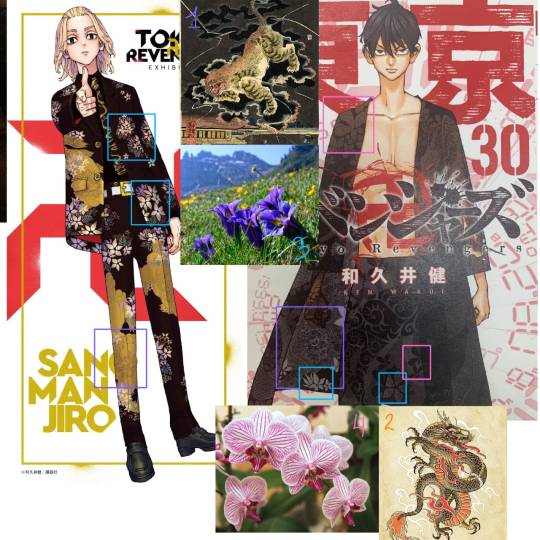
There are common features on their costumes, namely the image of Nue and gentians. But Shin has dragon and orchid images on his clothes.
Nue.
Nue (鵺) is a mythical creature seen in the ancient chronicles of medieval Japan. It has the head of a monkey, the body of a tanuki, the legs of a tiger, and a snake instead of a tail. Nue can turn into a black cloud and fly. Because of its appearance, it is sometimes referred to as the Japanese Chimera. She is not a predator, but feeds on human fears.
Nue is described in the historical Japanese chronicle dating back to the 12th century. The chapter "Nue" describes the following: "In the era of Nimpyo, during the reign of sovereign Konoe, the emperor suffered every night from an incomprehensible illness, and he was tormented by nightmares, from which he even lost consciousness. They turned to the highest priests. They read incantations and the most holy prayers, but it did not help. Every night at the hour of the Ox, the sovereign had a seizure. At this hour, a black swirling cloud hung over the palace and made the emperor suffer."
Nue is an allegory for the Black Impulse of the Sano brothers.
Nue makes the emperor suffer. The Black Impulse causes Mikey and Shin to suffer.
Nue can turn into a black cloud. A black impulse literally swirls around a person and makes him lose control of himself.
Nue is a chimera made up of parts from different animals. We all know how Mikey tends to take on the looks of people he cares about.
Nue can be said to be a being that mirrors the Sano brothers. (It only partially applies to Shinichiro, because the other half of the costume depicts a dragon. This refers to the duality of Shin. He can be both a majestic dragon and Nue).
The Dragon.
The golden dragon is located on the left side of Shin's cape, right next to the heart.
Gold is the official color of Shinichiro. The dragon refers us to his gang "Black Dragons".
The golden dragon is a symbol of power and strength. Both Chinese and Japanese emperors were given the epithet "dragon-faced". Moreover, it was believed that some emperors had a dragon's tail. Previously, only members of the imperial family were allowed to wear robes with gold elements / gold color.
Also, the dragon repeatedly acts as a protector of the buddhas and a generous giver of happiness and wealth.
Manjiro is the Buddha. There is a golden statue of Manjiro that replicates the golden statue of the reclining Buddha. In addition, the Manji sign is a symbol of the footprints of the Buddha.
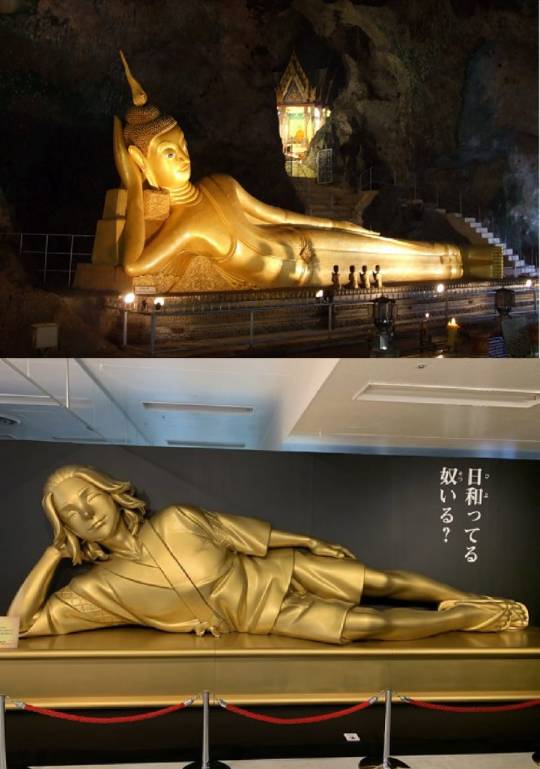
The dragon protects the Buddha. Shinichiro protects Manjiro.
In Western folklore, dragons are tough creatures that have a penchant for collecting various treasures. Often they spend time in their lair and guard the jewels.
Shin is like a dragon majestic and excellent. It has been repeatedly said that he was an outstanding man.
Shin, with special devotion and love, protects his precious little brother as the main treasure in life.
Covers of volumes 24 and 30.
In fact, I think these covers are similar.
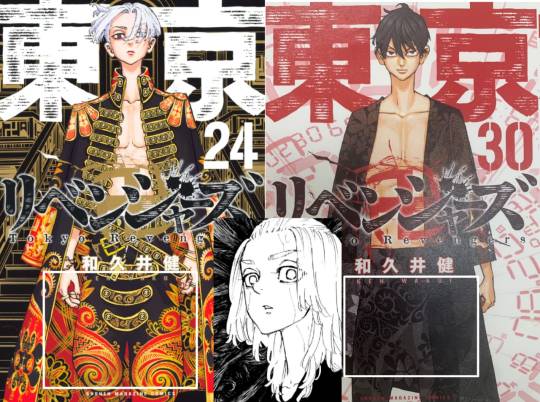
Their pants feature swirls that look like a black impulse. The main colors for the backgrounds are gold and red. Gold is the color of Shinichiro, red is the color of Manjiro.
Gentian.
Gentian is a beautiful autumn flower that means “sincere love”.
Orchid.
Orchid, the queen of flowers, means "pure love, tender memories."
Both of these flowers were used for Manjiro's funeral to express the love of the Sano brothers.
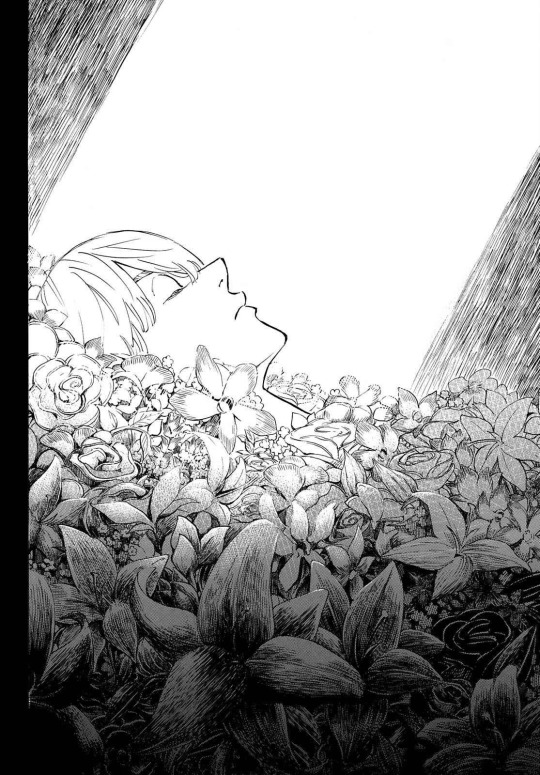
BUT these two flowers are often used in manga. This worries me a little.
Their names are in Japanese.
Gentian - 竜胆 (Rindo), Orchid - 蘭 (Ran). These flowers are literally the names of the Haitani brothers. The kanji in Rindo's name also have separate meanings 竜 (ryuu) - dragon, 胆 (kimo) - courage, spirit.
His name may mean "Dragon Spirit". The dragon is bonded by Shinichiro, Draken, and Mitsuya. With the closest people in Mikey's life who protect him from others.
Could the Haitani brothers have a connection to the Sano brothers or time traveler?
Even the clothes show a deep connection between Shinichiro and Manjiro. It has similarities as well as differences that show that they are very similar, but each one is unique in its own way. They both have great charisma, know how to change people and cannot live without each other. But also their methods, behavior, abilities are opposite. Even their characteristics are different. Shin is a crybaby who always lost. Manjiro is the "Invincible Mikey" who holds back tears.
They are like yin and yang, opposites making up a single whole.
They are the Sano brothers.

#tokyo revengers#manjiro sano#mikey sano#toman mikey#sano shinichiro#tokrev shinichiro#manga#analysis#shinichiro sano#haitani brothers#haitani ran#rindou haitani#symbolism
80 notes
·
View notes
Photo
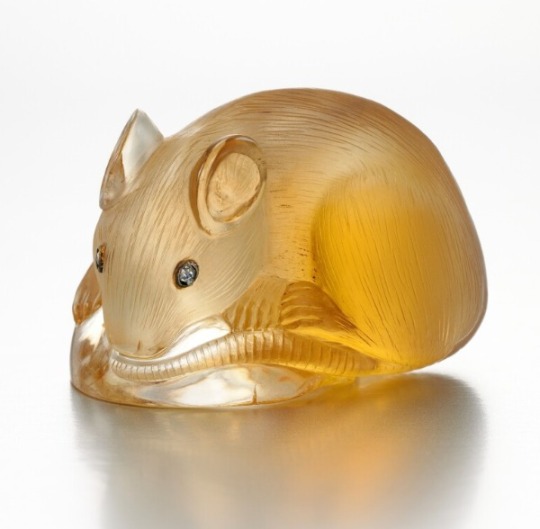
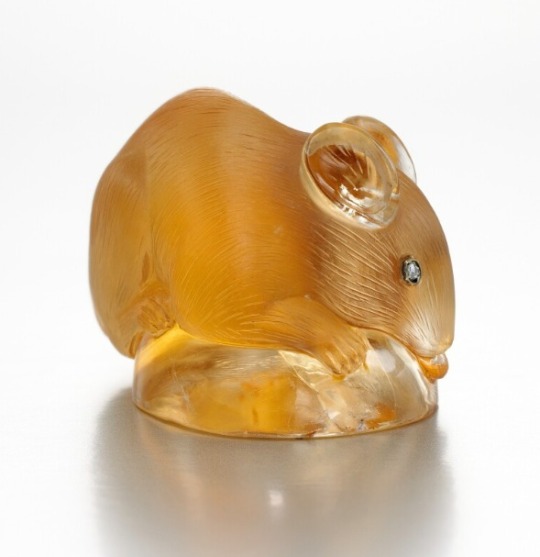
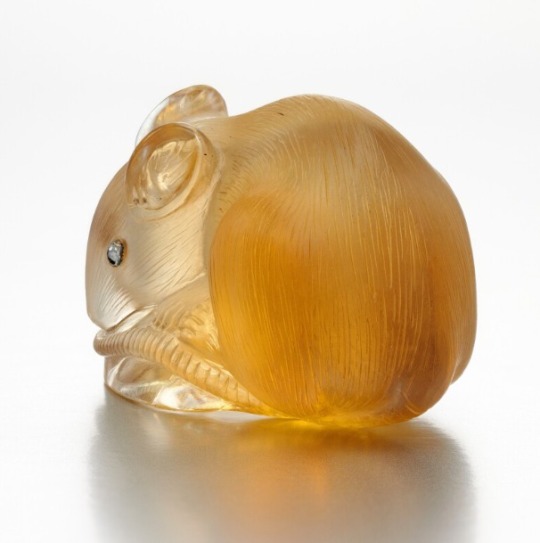

~ “Circa 1900 Fabrege jewelled model of a mouse carved in Citrine quartz; to emmulate a Japanese Netsuke. Crouched with curled tail, rose-cut diamond-set eyes, in its original silk and velvet lined case stamped with the Imperial warrant, St. Petersburg. 1 1/8 inches long.” ~
20 notes
·
View notes
Text
Izana / イザナ, Izumo / イズモ, and the Eternal Stairway / 黄泉の階段
Izana (JP: イザナ; rōmaji: izana) is the Archduke of Izumo in Fire Emblem Fates. His name comes from the sibling creation gods of Shintoism Izanami (JP: イザナミ; rōmaji: izanami) and Izanagi (JP: イザナギ; rōmaji: izanagi). The two used the jeweled spear Ame-no-Nuboko to form the first island of Japan, then bore children that would make up the other islands. During the birth of the fire god Hi-no-Kagutsuchi, Izanami was mortally burned; her spirit would rule over the land of the dead, Yomi. Izanagi and Izagami are regarded in traditional Japanese culture as the ancestors of the imperial family.
Izumo (JP: イズモ; rōmaji: izumo) is a kingdom within Hoshido, commonly referred to as the "kingdom of the gods". Izumo (出雲; rōmaji: izumo) was a former province of Japan with deep ties to Shintoism, at some point having been called the "realm of gods". Still standing is the Izumo Grand Shrine (出雲大社; rōmaji: izumo-taisha) one of the oldest existing Shinto shrines. It is said that it was erected in honor of the god of nations, protective magic, and happiness, Ōkuninushi. He once ruled over Japan from Izumo, but was convinced by the sun goddess Amaterasu - daughter of Izanagi - to relinquish his nation to her grandson Ninigi. Additionally, it is said that after her death, Izanami was buried on Mt. Hiba, which lies on the border of Izumo province.
The Eternal Stairway is a long-stretching climb between the Hoshidan capital and the Wind Tribe. This localized name is meant to emphasize the sheer distance the path spans. In Japanese, the name is 黄泉の階段 (rōmaji: yomi-no-kaidan), translating as Yomi's Stairway. As touched on above, Yomi is the Shinto equivalent to the Greco-Roman underworld or Judeo-Christian Hell/Sheol. After Izanami's death, Izanagi would venture to the entrance of Yomi, found in Izumo, to bring her out of death. After wandering through this land of darkness, Izanagi was eventually reunited with Izanami, but as she had already partaken of the food of Yomi's hearth, it would not be possible for her to leave. Upon betraying his sister's one request, to not look upon her, he discovered her body was already rotted and decayed. Overwhelmed by fear, Izanagi sprinted out of Yomi and blocked the mouth of the land with a large boulder, sealing the underworld shut. It's worth noting that in Birthright and Revelation, Corrin is heading towards Izumo using the Eternal Stairway, while in Conquest, they go to the Eternal Stairway after Izumo.
3 notes
·
View notes
Text
Ariwarano Narihira's Masterpiece of Epic Poetry and Machi Tawara, Who calls It Bad (Essay)

An extremely beautiful epic poetry (Journey song) appears in the 87th paragraph of The Tale of Ise.
It seems
that there is a person
Untie a necklace
Will they fall soon
On the narrow sleeves
ぬきみだる
人こそあるらし
白玉の
まなくも散るか
袖のせばきに
This is a poem that Narihira composed when he visited a famous waterfall (famous Nunobiki Falls) in what is now Hyogo Prefecture with a group of people. There is a man above the waterfall who cuts off the string of the jeweled necklace, and the jewels fall down, but my sleeve is too narrow to catch them, and the jewels drift away in vain.
What a beautiful landscape! Compared to many poems by Japanese poets, this poetry will be one of the best.
By the way, when I was reading a book by Machi Tawara (a former high school teacher who was two years younger than me), who made a name for herself in the songbook "Salad anniversary", I came across an unexpected story. The description caught my eye. She had decided that Narihira's famous song was a piece of crap.
...She has a spectacular career, but I cannot understand her criticism of "Untie…". One thing I can think of is that her successful work "Salad anniversary" is definitely a collection of "love songs". To put it in an old fashioned way, it's a "somonka:相聞歌", and I have to admit that there are modern ideas and technical mastery in this field.
Then, what about "Kiryo no Uta:羇旅歌" = "Journey songs"? Since ancient times, I think that female poets do not have "masterpieces" in this field of singing. I can't even think of a female poet who composed such a song. For men, names such as Kakinomotono Hitomaro, Yamabe Akahito, and Otomo Tabito are easily remembered. Of course, Ariwarano Narihira. (Of course, Hitomaro and Narihira were also excellent Somonka poets.) In addition, female poets famous for Somonka including Prince Nukata, Komachi Ono, Izumi Shikibu, and Imperial Princess Noriko, I don't remember seeing a dynamic epic poetry even though I talked about their passionate love songs.
Machi Tawara, you don't have the knowledge, experience, or ability to talk about "Untie...".
#Ariwarano Narihira#Machi Tawara#epic poetry#journey song#love song#somonka#Untie a necklace#jewels#sleeve#female poet#tanka#The Tale of Ise#essay
8 notes
·
View notes
Text

Crown Princess Diamond Scroll Tiara ♕ Japanese Imperial Family
93 notes
·
View notes
Text
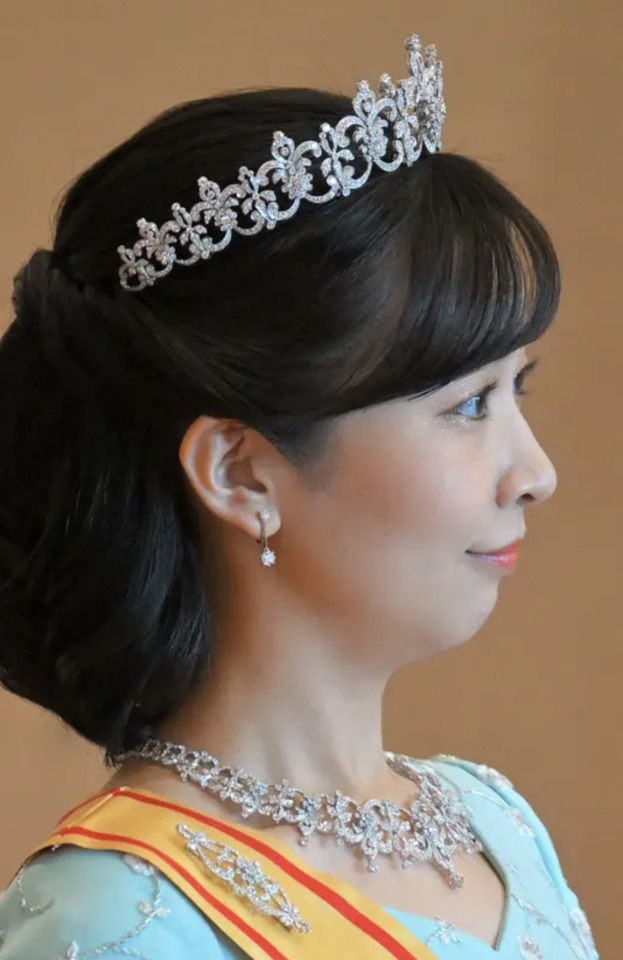
TIARA ALERT: Princess Kako of Akishino wore her Diamond Tiara at the New Year’s Reception at the Imperial Palace in Tokyo on 1 January 2024.
#Tiara Alert#Princess Kako#Japan#Japanese Imperial Family#tiara#diadem#royal jewels#tiaras#diadems#royaltyedit
95 notes
·
View notes
Note
I love Eva with pearls. Maybe because they're generally worn by the royal or wealthy, or that they have a pale, ethereal, ghost-like vibe, or the association with the ocean and tears, but whatever the reason I just always picture her dripping in pearls. And her having to choose whose pearls to wear is just *chefs kiss*. I can imagine Jack's bitterness at already knowing Eva favours Alfred over him, only to then see her wear Kiku's pearls instead of his own. Just love how much they can represent.
Ahhhhhhh yesssssssss. This is gonna come up in the next couple of chapters for sure!! Female England and pearls is just a combo I could not ignore, especially for the turn of the 20th century.
So like, Japan made the first cultured pearls in 1893 and ten years later had perfected it and now Akoya Pearls are considered like a staple for jewellery havers because they're the standard pearl. They let the pearls go to Europe but were a bit stingier in the US market initially. They tend to be on the smaller side though, the pearls that is, and having said that, the most valuable and largest are South Sea Pearls, which Australia has one part of the market covered.
But it's genuinely a fight in the 1900s acting as a microcosm of where England's attentions and loyalties should actually be. With Japan or with the Dominions? Who does she pick? And then with the Imperial Conference in 1921 you get the dreadful answer of... neither. She picks America (and incidentally Canada), managing to dump both Japan and Oz at the same time with the end of the Anglo-Japanese Alliance, thus exposing Australia to danger in order to placate America and protect Canada from danger. Rather incredible Catch-22 situation there.
But in that moment, it's just the much smaller issue of 'whose pearls do I wear', Jack's statement pieces made for his mama or Kiku's strings made for his partner?
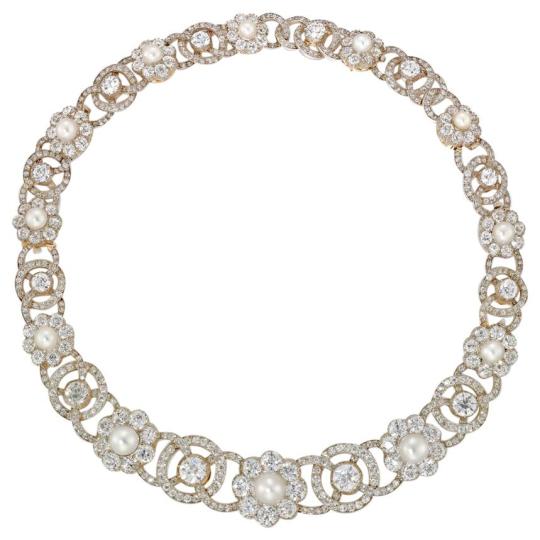
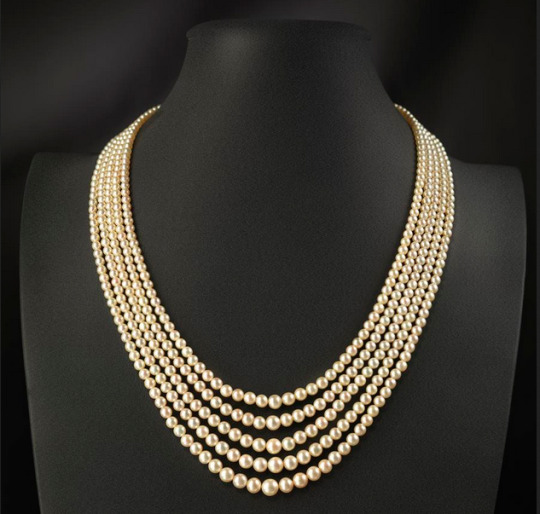
And don't get me wrong, Eva is a bit (a lot) of a magpie but she's not like... Queen Alexandra level of extravagance.

Do you ever just... well. You could have shot her and the bullets would have just bounced off a la the Romanovs.
But you should know that I love hunting for antique jewellery online, and thus, I've grown to love the idea of Jack giving his Ma endless pearls and opals and sapphires, even to this day. Like during special occasions or some anniversary, she'll get a new brooch or ring mined and set by him. The idea of Jack being a bit of a master jeweller is such a fun headcanon to me.
In the early 20th century, once he's been upgraded to a Dominion and Commonwealth, he is simultaneously more and less secure in his position in the family. He can occupy his space quite happily, Mama's little gem, but the way I vision Oz is that, yes, he can get rather jealous and snippy and bitter when he feels people are barging in and taking over a role that he does particularly well. He had to carve out a space which wasn't just a replacement for joyful and sweet Alfred nor simply the less respectable and dutiful version of Matthew, so he gets touchy when something (he perceives) is intruding in his sphere.
#q&a#hws england#fem!england#hws australia#headcanon#op#I hope it comes across in the fic#that the kids hold like zero affection for Britain as a mother country because imperialism#and yet they are almost as equally as possessive over Evelyn as she is over them because... in part... imperialism#hetalia#fanfic ask
11 notes
·
View notes
Text
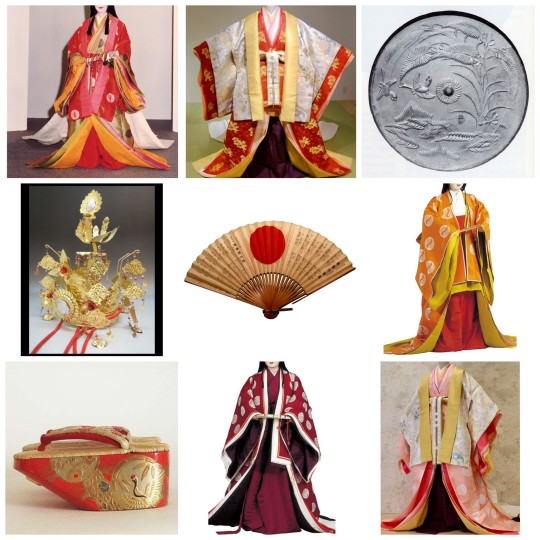
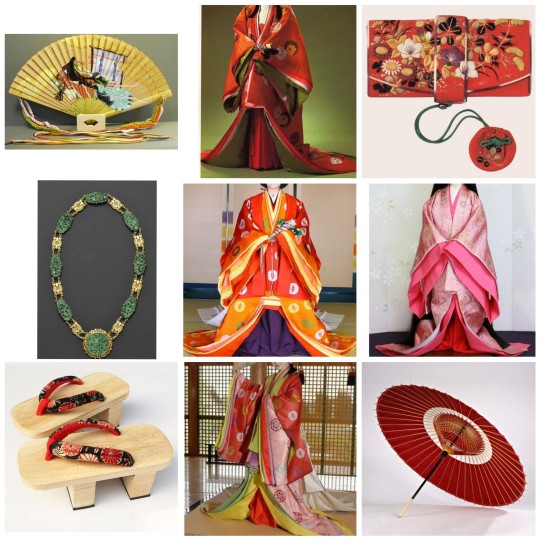
Mythology Weekend - Amaterasu
Amaterasu is the Shinto goddess of the sun in Japanese mythology and the ancestress of the Imperial House of Japan. She is the embodiment of the rising sun and in one of her most popular myths, Amaterasu hides in a cave after the storm god Susanoo is in a violent rage and hides her light from the world. Only the joyful pranks and laughter of the other gods could convince her to come to the mouth of the cave, where a mirror and jewels were hung. Struck by her reflection, the other gods took Amaterasu from the cave. The mirror, jewels, and the sword Susanoo gave Amaterasu as an apology became the Three Sacred Treasures passed down through the Imperial Line.
#my post#capsule wardrobe#capsule#fashion#style#minimalism#minimalist wardrobe#minimalist fashion#red#yellow#orange#pink#fall#mythology#mythology weekend#japanese mythology#junihitoe#heian era#Amaterasu#she's usually depicted in clothes for various eras/styles but I stuck with the Heian era to really stick with the Imperial style#also junihitoe are just neat and really exude that luxury feeling
19 notes
·
View notes
Text
Koukyuu no Karasu Volume 1 Chapter 2 - The Flower Flute (Part 2)
Translation Notes
1. Specifically, China roses.
2. In the original Japanese, the furigana for 海商 literally reads "haishan," but I decided to translate it to English since there's really no reason not to.
3. The term used here, 玉の帯, specifically refers to a "special leather belt used in ceremonial court dress, covered in black lacquer and decorated with stones and jewels."
Previous || Index || Next
The next day, after finishing the morning meal, Jusetsu put on the palace lady’s dress Koushun had given her before and left Yamei Palace. If she was going to prowl around the inner palace, then this getup was more convenient.
“Niangniang, please wait!”
Jiujiu followed Jusetsu, who was walking quickly.
“Are you really going to Hua Niangniang’s palace?”
“I am.”
As they walked along the white sand path, a magnificent palace came into view. The roof tiles were decorated with mandarin ducks, and there were also mandarin ducks depicted on the hanging lanterns. The pillars were a vivid vermillion, and they were set off nicely by the blue sky. The palace was surrounded by hedges of roses (1) in full bloom, and the air was filled with a sweet, clear scent. Jusetsu treaded on the pebbles spread out in front of the palace and headed towards the entrance.
“It would be nice if Yamei Palace had flowers planted around it as well…”
Jiujiu seemed envious as she stared at the roses planted next to the pebbles.
“Flowers do not grow in that place.”
“Huh? Is that so? Why?”
Before Jusetsu could say anything, a voice came from behind them.
“If you would like, you may take some.”
It was Kajou. She was accompanied by a large host of attendants. She was the very picture of an imperial consort. Kajou ordered an attendant next to her to cut a rose branch and presented it to Jusetsu. The thorns were properly removed. Jusetsu put the red flower in Jiujiu’s hair. The small flower, which was still nearly a bud, suited her well. A shy smile appeared on Jiujiu’s face. Kajou gave another branch to Jiujiu, and she placed it in Jusetsu’s hair.
“It really suits you, Niangniang.”
She couldn’t see the flower in her hair, but she gently touched the petals with her fingertips and said, “Thank you.” Her fingers touching the petals felt a bit warm.
“Please, come inside.”
Kajou indicated the front of the palace. Jusetsu and Jiujiu walked on top of the paving stones accompanied by Kajou. The attendants followed close behind. Jusetsu turned her head towards the walkway that connected to the neighboring palace. Palace ladies were coming and going through there. Each of them held boxes in their hands.
“Those are goods sent to us by sea merchants.” (2) Kajou said, following Jusetsu’s gaze. “Lapis lazuli bowls, silver dishes, jeweled belts (3)…and other unusual items from countries across the sea.”
To sum it up, they were tributes from the purveyors for the inner palace. When Kajou asked if she would like to take a look at them, Jusetsu shook her head. Jiujiu looked disappointed.
When they entered Kajou’s room, she told her attendants to manage the tributes and had them withdraw.
“Are you here regarding the flower flute?”
Kajou asked as she brewed the tea herself in a kettle. A soft carpet was laid out at her feet, and a beautifully woven brocade partition was used as a room divider. The covering for the table was embroidered with mandarin ducks.
“I wish to ask about Ou Genyuu.”
When Jusetsu said that, Kajou’s hand stopped stirring the hot water with a spoon.
“About Genyuu…? What do you want to ask about?”
“Anything will do. I wish to hear what you know.”
She had asked Koushun to find out more about Father Moonlight, so she decided to investigate Ou Genyuu.
“Genyuu…oh, yes, he was like boiled water that had been cooled.” As she stared into the water in the kettle, a smile appeared on Kajou’s face. “Warm and gentle…There was passion in him, but he never used his heat to hurt others. ——But cooled water is only at just the right temperature for a short while. He, too, passed away before I knew it.”
Kajou ladled out the tea, poured it into a cup, and gave it to Jusetsu.
“Cooled water is good for the body,” That was all Jusetsu said before blowing on the cup. After letting the tea cool, she slowly drank it down, enveloped by the fragrance, and felt the warmth spreading in her stomach.
“He was a civil servant who worked his way up after passing the examinations, not someone from a noted family. My grandfather favored him and sent him to Reki Province because he could get a promotion if he made accomplishments there. He told me that he had to get an impressive position so that he would be able to marry me, before departing in high spirits. I should have kept him here. Promotions and things like that…”
Kajou’s voice trembled and broke off. Her face twisted for a moment beyond the steam, and then she brought her cup to her lips and emptied it in one gulp.
“…Tea is not something that is meant to be consumed in this way.”
Kajou poured another cup for herself and blew out a thin breath before holding it in her mouth.
“I wonder if his soul had gotten lost in Reki Province. He was clever and sensible, but he could also be rash…”
“Souls get lost from time to time,” Jusetsu said, and Kajou raised her eyes from her cup.
“Is that so? Then, can you guide him correctly?”
“I can. I can summon him and send him to paradise.”
Kajou’s eyes lit up with hope. Jusetsu felt slightly guilty, wondering if she had overstated it too easily. Genyuu’s soul hadn’t gotten lost, it couldn’t be found. But, sitting in front of Kajou, she felt compelled to offer words of encouragement. Even though Reijou had told her, You must not show too much sentiment for those who come to the Raven Consort for help.
It wasn’t like this before. This was because she had never associated with other people. It wasn’t good to have one’s emotions shaken. It clouded one’s judgement. You didn’t know what to do——.
“Lady Raven Consort, how does His Majesty look to you?”
Jusetsu, who was somewhat agitated, was slow to react to Kajou’s words. “…Eh? What do you mean by ‘how’?”
“His Majesty seems to have changed a little. Ever since he met you.”
Jusetsu tilted her head. Kajou continued.
“For some reason, he is not someone who expresses his emotions openly. But it seems that it is different when it comes to you.”
“He is as expressionless in front of me as he is in front of everyone else.”
Kajou smiled. “He may be so in front of you, But when he talks about you to me, I think he is more expressive than usual.”
That is most likely because he relaxes his guard around you. It has nothing to do with me, Jusetsu thought, but didn’t say anything because it would be too troublesome.
“I cannot imagine him being expressive.”
When she said that, a despondent smile appeared on Kajou’s face.
“I understand why you think that way…you might not be able to imagine it now, but when His Majesty was a child, he laughed and got angry freely. He stopped showing emotions openly after Tei Ran——”
“Tei Ran?”
“Do you not know about him?”
When Jusetsu answered no, Kajou hesitated before speaking.
“He was a eunuch who served His Majesty when he was young. He was a eunuch, but His Majesty adored him. …He died a horrific death.”
By the order of the empress dowager, Kajou murmured. She hung her head with a somber look on her face, perhaps recalling that time.
Jusetsu suddenly remembered what Koushun had mentioned before. “That woman killed my mother and my friend.” He was referring to the empress dowager. He said that on the night of her execution day.
“——Was he Koushun’s ‘friend’?”
Kajou raised her head and blinked her eyes.
“Yes—he was. His Majesty called him his friend,” Kajou nodded, her voice somewhat hushed. “Do not say that name in front of him. It will open old wounds.”
That was how deep the wound was. Jusetsu almost recalled Koushun on that night before shaking her head. It was best not to think about it too much. Koushun’s emotions were not something for her to imagine. She would get pulled away by her sentiments.
“To begin with, I do not have the type of relationship with that man where we would chat over tea.”
Saying that curtly, Jusetsu stood up.
“Are you returning already?” Kajou also stood up. Jusetsu briskly walked towards the door, so Jiujiu, who was standing to the side, hurriedly followed her.
Jusetsu descended the steps and was about to leave the palace when she suddenly stopped in her tracks. She looked towards the neighboring palace. The palace ladies were busily continuing to organize the tributes.
Jusetsu tilted her head. Was it just her imagination? ——She thought she sensed the presence of a ghost.
However, it was only for an instant, and she was unsure if it was actually there or not, and now she could no longer feel it. There were many ghosts who appeared and disappeared in the inner palace. Was this one of them? She couldn’t be bothered to pay attention to every single one of them.
Jusetsu started walking again, her shoes crunching the pebbles at her feet. She didn’t notice that she was being watched from behind from far away.
ーーー
From a distance, she could hear the sound of the night patrol eunuchs announcing the time and the sound of drums. When she could no longer hear them, she opened her closed eyes. She got out of her bed and pulled open the silk curtains. Xingxing was raising a fuss.
“So he has arrived.”
Muttering that, she flicked one of her fingers to open the door. Koushun was the one who came. And of course, Ei Sei was following behind him like a shadow.
“As expected, Father Moonlight died.”
Koushun spoke as soon as he sat down in a chair.
“Are you certain?”
“His sentence was to be caned and then be banished to outside of the province, but he died before he was caned a hundred times. Apparently, he was extremely emaciated, so he most likely couldn’t endure it.”
“Since he is elderly, it would be so.”
“No, he was called ‘Father,’ but he wasn’t an elderly man.”
“Why is he called ‘Father’ if he is not old?”
“No one knows for sure. His real name is unknown as well. He came from somewhere and became famous for his divination and fortune-telling. It is also said that he could use sorcery. Also——”
Koushun briefly stopped talking and quickly looked around the room. Jiujiu had already retired for the night, so there was no one else in the room.
“——There’s a rumor. They say that Father Moonlight was a member of the previous imperial family.”
Jusetsu felt her cheeks stiffen.
“Preposterous.”
“There’s no evidence. There’s only this secret rumor. It might be words spoken without much thought, used to gather believers.”
That was probably the case. It was a common method of deception to make people believe the plausible lie that the person in question was actually the illegitimate child of the emperor or the son of a high class noble.
“…What kind of divination, fortune-telling, and sorcery was that person said to have performed?”
“From trifling things like searching for lost items, to accusing people of murders that no one knew about and revealing adultery. He was also good at predicting the weather. For sorcery, Father Moonlight was said to have used a phantom tiger to attack those who mocked him, and to have turned a rod into a snake.”
I don’t know how much of that is true, he said.
“Illusions and transformation arts…”
Those were the arts that sorcerers were skilled at. Jusetsu couldn’t grasp the extent to which Father Moonlight was a powerful sorcerer. Finding lost things or predicting the weather were things that could easily be faked. However, if the illusion-type magic was true, then he was a sorcerer in his own right.
Watching Jusetsu, who was deep in thought, Koushun continued to speak.
“There is also this story. Some say that Father Moonlight isn’t one person. Apparently, there were times when he seemed like a different person. It almost seems like divine possession.”
“Does he have a twin?”
“Some officials suspected this and questioned him severely—but then, one of them would have made their escape—but apparently, that wasn’t the case.”
“Is that so…”
The more she heard, the less she understood. Who exactly was Father Moonlight?
“That’s about all we learned. I’ll let you know if we learn anything else.”
After saying that, Koushun quickly stood up. That was rare. He always lingered even when she tried to chase him out.
“I’m visiting Kajou tonight.”
“I did not ask.”
Koushun put his hand in his pocket and took out a twill brocade pouch. He tossed it to Jusetsu. Since it was thrown at her, she had no choice but to hold out her hand. It landed in Jusetsu’s hand.
“Do not throw things.”
“They’re dried apricots.”
Eat them, he said. Whenever he came here, Koushun would often give Jusetsu things like these. She disliked this behavior, as though he was accustoming a monkey by feeding it, but the things he gave her were delicious.
“…Kajou told me that you have changed recently,” Jusetsu said while peering into the pouch.
“Changed? In what way?”
“She said you became more expressive.”
When you talk about me. But she kept that part secret. Koushun expressionlessly tilted his head to the side.
“She must be mistaken.”
With those few words, Koushun left the palace.
While eating the apricots, Jusetsu watched his back for a while, wondering how someone like him could seem expressive.
ーーー
The scent of roses was thick in the silence. Koushun walked between the roses in the darkness and approached Enou Palace. Kajou was waiting in front of the steps along with her attendants. Ei Sei, who was holding the lantern, moved behind him. Kajou sank to her knees and bowed in front of Koushun. Koushun was impressed at how the girl who was once a bit of a tomboy and always beat him in tag had become so graceful. But he did not say so, because he would get twice as much sarcasm from her.
“Did you go see the Raven Consort?” Kajou said as she sipped her tea, after having her attendants retire.
“I did.”
Kajou stared at Koushun silently. There was a smile on her face, but he knew very well that she was reproaching him. She had always silently taken him to task.
“I only went to there to report information.”
His voice naturally took on a tone of making excuses. Like a younger brother being scolded by his older sister. Kajou let out a sigh.
“You should not visit the Raven Consort so often. It is a source of bad rumors.”
“I don’t go there that often.”
“The Raven Consort is different from the other consorts. She is not someone Your Majesty can fall in love with. It would cause trouble for her as well. Why are you so attached to her, like a child?”
“Attached?”
“You are attached to her, are you not?”
“…I only want to see her and talk with her.”
He was interested in Jusetsu’s reactions. He wanted to see what she would say and what kind of face would she make, so that was why he couldn’t help but go to her.
“If you wish to converse with someone, do it with another consort. That is not the Raven Consort’s responsibility. Your Majesty, you are spoiled by her kindness.”
“She is kind?”
She was the girl who chased him out with brute force if she was displeased with him.
“She has a kind heart. She is someone who cannot abandon anyone. That is why she listened to my request.”
Koushun stared at his teacup. Warm steam was rising from it. ——Certainly, during the jade earring incident, Jusetsu had been working that hard because she felt pity for that ghost.
“You must not cause her any trouble or hurt her unnecessarily. You will regret it, Your Majesty.”
“…I understand.”
Koushun answered honestly. He had never been able to go against Kajou.
It was now the third watch of the night (eleven p.m. to one a.m.), and Koushun left Enou Palace. The night had darkened still more, and the fragrance of the flowers was strong. Koushun, who was walking between the roses, quickly came to a stop.
“Have I changed in any way?”
He asked Ei Sei, who was behind him like a shadow. After a short pause, Ei Sei answered, “I shall humbly say, I do think that there are some aspects that have changed.” After another short pause, he added, “When it involves the Raven Consort.”
“Oho,” Koushun responded, as if they were talking about someone else. He did have some self-awareness. He had an interest in Jusetsu. To the point where he asked her if she would become his consort—it was, just as Jusetsu had said, half sleep talking.
For example, what was Jusetsu thinking on this night, alone in that jet black palace? He was thinking that.
Koushun looked up at the sky. The moon shone through the clouds that were like thin silk. The bottomless black sky was like the feathers of a raven.
——Yes, that girl is alone.
She had a palace lady and attendant now, but until then, she only lived with a servant woman who took care of the barest minimum of needs. She lived quietly, as though hiding away from the eyes of others.
“The Raven Consort is…”
Ei Sei caught his mutter. “Have you said something?”
“No, it’s nothing.”
Koushun said, and started walking among the roses again. This was a quiet night.
An incident occurred the next day.
Previous || Index || Next
9 notes
·
View notes
Text
Weapons and Armour they used In Ancient times
Kusanagi no Tsurugi - the English translation for is a ''Grass - cutting sword.'' the name is derived from Japanese words - Kusanagi meaning Grass or weed and Tsurugi,'' sword or blade.
in ancient times the sword was believed to have one of the three imperial regalia of Japan , along with the Yata no kagami (mirror) and the Yasakani no magatama (jewel) . These regalia symbolise the divine right to rule and were passed down through imperial family.
According to Japanese mythology, the sword was given To the First emperor of Japan also known as Jimmu, by the sun goddess of Amaterasu
The sword is determined to be used in various mythical tales, including the slaying of the Serpent Yamaha-no-orochi by the god Susanoo.
in the existence of kusanagi no tsuragi as a physical sword it hold immense cultural and symbolic significance in Japan history and folklore.
It continues to be revered as a symbol of protection and Power , representing the imperial authority and the connection between the divine and mortal realms.
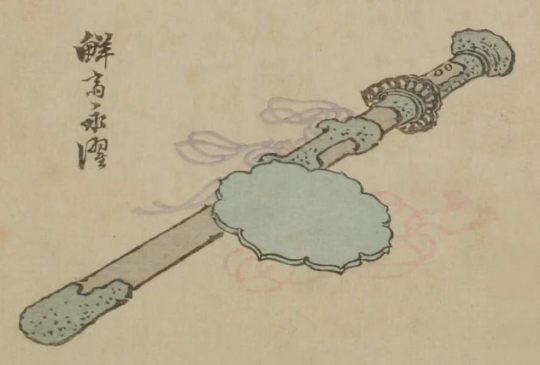
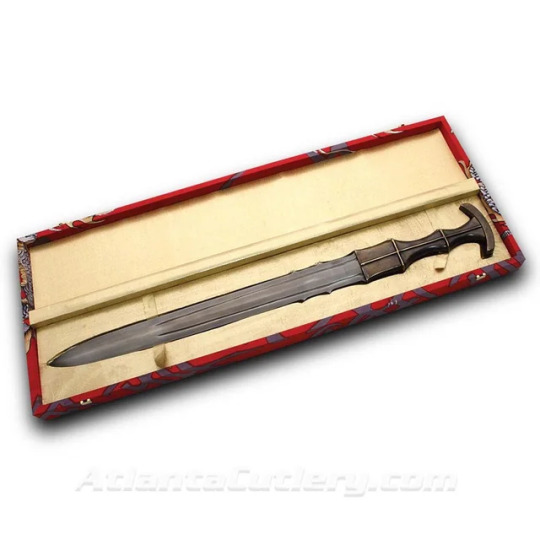
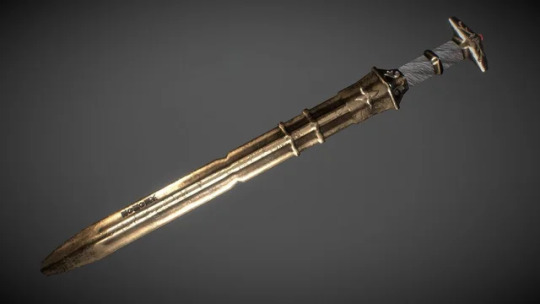
0 notes